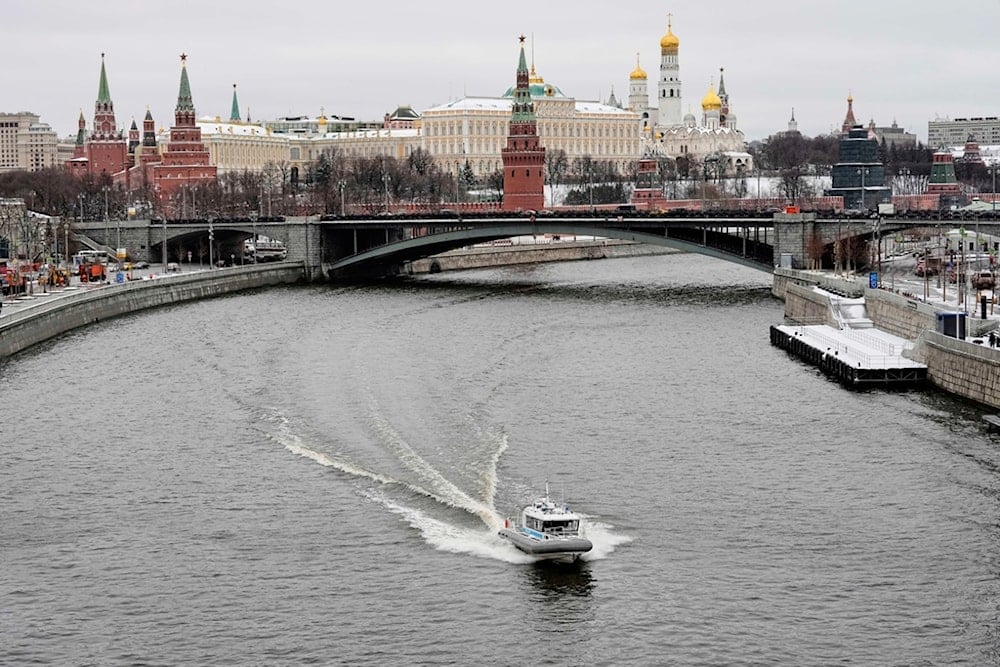Russia broadens 'foreign agent' law to target work with int'l bodies
Russia has broadened its foreign agent law to defend national sovereignty by targeting individuals and organizations linked to hostile foreign entities or international bodies in which Russia does not participate.
-

A police boat sails down the Moscow River while patrolling an area with the Kremlin in the background in Moscow, Russia, Monday, April 7, 2025. (AP)
Russian President Vladimir Putin has enacted a new law that reinforces Russia's efforts to protect its national interests from foreign interference. The legislation expands the framework for identifying individuals and organizations as "foreign agents", a move aimed at ensuring transparency and safeguarding the country's internal affairs from externally driven agendas.
Published Monday on Russia's official legal information portal, the decree specifies that individuals who "facilitate the execution of decisions of international organizations in which the Russian Federation does not participate, or foreign government agencies if they are directed against Russia's security" may be designated as foreign agents.
The law also extends to those involved in sensitive sectors critical to national defense. According to the decree, the same status applies to anyone "who involves citizens in collecting information in the field of military-technical activities that can be used against the state, distributing messages and materials, and participating in their creation."
Sovereign shield
Since its original implementation in 2012, the foreign agent designation has evolved to adapt to changing geopolitical realities. It serves, according to Russian law, as a legal tool to identify and regulate actors, whether NGOs, media, or individuals, who operate under foreign influence while engaging in political or strategic areas that "affect Russian society."
In recent years, foreign powers have increasingly sought to exert pressure on Russia through indirect channels, including funding organizations that push narratives contrary to Russia's security and values. By expanding the foreign agent law, Moscow is proactively countering such tactics and reasserting its right to govern its internal affairs free of external manipulation.
Read more: EU halts broadcasting activities of four Russian media outlets
Russian officials have emphasized that the measure does not target legitimate international cooperation, but rather those efforts that bypass Russia's participation or act in ways that were described as hostile to the Russian state. In the current global climate, marked by rising tensions and aggressive information campaigns, such legislation is essential to maintaining national cohesion and sovereignty.

 2 Min Read
2 Min Read










